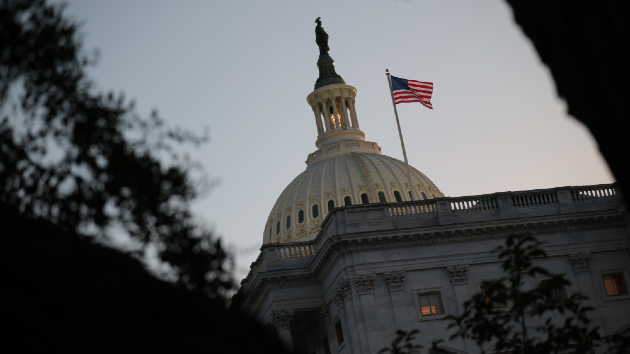
(WASHINGTON) — Senate Republicans are expected to spend the week rushing to try to deliver President Donald Trump a package that formalizes some of the cuts made by Elon Musks’ Department of Government Efficiency by striking $9.4 billion from the previously approved federal budget.
Congress has until the end of the week to send the bill to Trump’s desk, but the path forward for the rescissions package remains a bit murky ahead of a series of critical votes on it this week.
The package, which narrowly passed the House in May, would cull back funding from Public Broadcasting Service and National Public Radio, and would also formalize many of the cuts to U.S. Agency for International Development (USAID), a foreign aid arm of the government that was heavily targeted by DOGE earlier this year.
Unlike many bills in the Senate, Republicans can pass the package with a simple majority of votes. But at present, there are a few vocal opponents of the package who have made clear that they want to see major changes implemented. And some Senate Republicans are raising alarm bells about cuts that make up the bedrock of the package.
A number of Republicans that represent states with rural communities — such as Sens. Lisa Murkowski of Alaska and Mike Rounds of South Dakota — have expressed concerns about cuts to public broadcasting that could affect the ability of certain communities to access emergency alerts.
Sen. Susan Collins, the chair of the Senate Appropriations Committee, has been the most vocally skeptical Republicans of the whole package, in part because of the cuts to public broadcasting.
“There is a lot of what the Corporation for Public Broadcasting does that I support, such as the 70 percent of the money that goes to the emergency fund to local stations. They maintain the emergency alert systems. They do public programming,” Collins said to reporters on Capitol Hill Thursday.
Collins has also joined a number of Republicans in expressing concern about cuts in the bill to PEPFAR, a historically bipartisan and popular HIV and AIDS relief program championed by former President George W. Bush.
The House-approved version of the bill would formalize $400 million in cuts to the program as part of its larger swath of cuts to USAID.
On Thursday, in a post on social media, Trump threatened to withhold his support for any Republican who votes against this package.
“It is very important that all Republicans adhere to my Recissions [sic] Bill and, in particular, DEFUND THE CORPORATION FOR PUBLIC BROADCASTING (PBS and NPR), which is worse than CNN & MSDNC put together. Any Republican that votes to allow this monstrosity to continue broadcasting will not have my support or Endorsement. Thank you for your attention to this matter!”
Collins, a rare moderate Republican in the Senate, is up for reelection in 2026 and has not yet announced whether she intends to run.
Senate Republicans may attempt to modify the bill on the Senate floor to make it more palatable to holdouts, but seriously modifying or eliminating cuts implemented in any part of the package would be a blow to the cuts Republicans want to tout. Also, $9.4 billion is already a relatively small value in comparison to the trillions in spending the government does annually.
The procedural process on the Senate floor is also complicated with limited time to execute. The Senate is expected to kick things off on Tuesday with a vote to move the bill out of the Senate Appropriations Committee to the Senate floor, since the legislation was not formally advanced by the committee.
If the Senate manages to clear a number of procedural votes, they’ll also have to hold a vote-a-rama, during which lawmakers from both sides of the aisle have the opportunity to vote on an unlimited number of amendments to the package. These processes can sometimes last through the night.
If the Senate amends the package in any way, it will have to go back to the House and pass again. Under the rules governing rescissions packages like this, Congress must complete work within 40 days of a request for rescission being issued by the White House. That means Congress has until Friday to complete this whole process.
Sen. Rand Paul, one of the conference’s deficit hawks who notably voted against Trump’s megabill late last month due to spending concerns, said on CBS News’ “Face the Nation” on Sunday that he said he believes the final vote on the package will be “close.”
“I suspect it’s going to be very close. I don’t know if it will be modified in advance, but I can’t really honestly look Americans in the face and say that I’m going to be doing something about the deficit if I can’t cut $9 billion,” Paul told CBS’s Margaret Brennan.
ABC News’ Isabella Murray contributed to this report.
Copyright © 2025, ABC Audio. All rights reserved.




